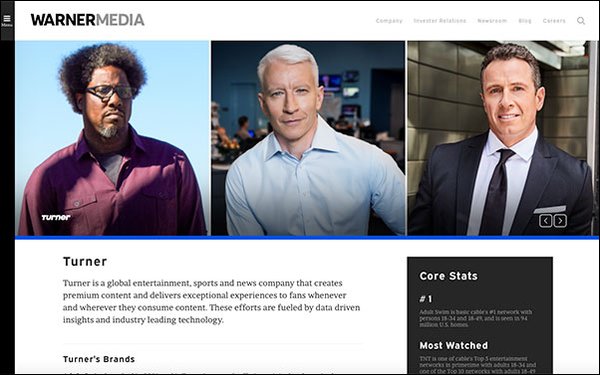Turner Leaves Open AP Consortium
- by Wayne Friedman , April 20, 2019

ATT's Turner TV unit has parted ways with industry ad consortium OpenAP.
“As our company has transformed, our advanced advertising strategy has evolved,” stated a WarnerMedia representative, regarding its Turner unit. “As a result, we are withdrawing from OpenAP. We appreciate what OpenAP has supported to this point in widening the adoption of audience-based buying on television.”
After completing its deal to acquire Time Warner (now WarnerMedia), AT&T has pushed its own advanced advertising unit, Xandr. It has a database of AT&T's 170 million direct-to-consumer relationships, across its wireless, video and broadband businesses.
Xandr is set to work with Turner on advertising deals, as well as satellite pay TV provider DirecTV and its OTT platform, DirecTV Now. For its own part, DirecTV is growing addressable advertising deals.
advertisement
advertisement
Established in March 2017, Open AP had three founding members: Fox Networks Group, Turner and Viacom. Since then, NBCUniversal and Univision have joined the group.
A major focus of Open AP was establishing new common industry TV audience/data targets for TV networks to compete more effectively with new digital media platforms. A year ago, Open AP said it started 800 media agency accounts around the consortium’s efforts.
While media agency executives approved of the idea of new audience targeting, they worried it would significantly increase their media costs. When it comes to traditional TV media, agency estimates are 10% to 20% of media budgets should go into new audience targeting.
Regarding Turner's decision, an NBCU representative stated: "Fox, NBCUniversal and Viacom remain committed to working together in pursuit of a premium, open, independently verified marketplace that will continue to transform the industry. Over the next few months, we will be growing and expanding the OpenAP platform to simplify audience buying at scale."



Not surprising, given Xandr's internal focus but disappointing as it seems that TV network groups have such an opportunity to collectively marshall resources to improve their products. Economies of scale could potentially be achieved through cooperative standardization of third-party data contracts and ad avails systems development. I suppose the networks want to retain their "special sauce" approach but the individual flavors may get lost if advertisers and media agencies have difficulty making holistic sense of all the offerings out there.
At this point it seems clear that the TV networks and major cable channels are not interested in allowing time buyers to make comparisons between their offerings and those of competitors. This means that the so-called "advanced" targeting systems now in place are mainly designed as sales promotional ploys geared to attain higher CPMs for individual sellers, in single seller deals. This is not going to result in a major departure from the existing corporate buying, audience tonnage system so long in vogue---but merely a bit of dabbling here and there by those brands that are free to explore new targeting schemes.